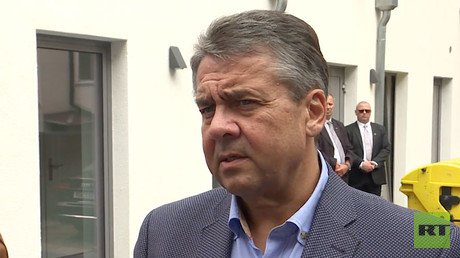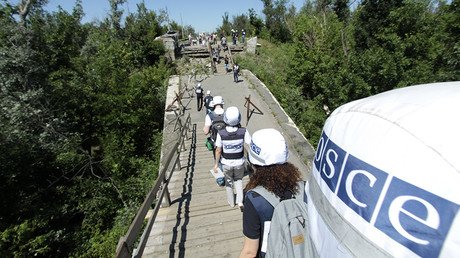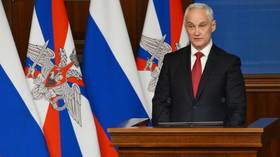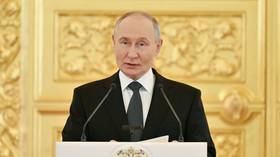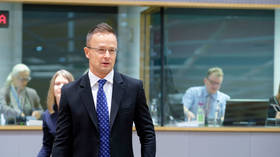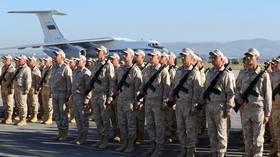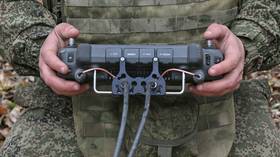‘We won’t force them’: Lavrov on US & Ukraine rejecting Russian proposal for UN mission to Donbass
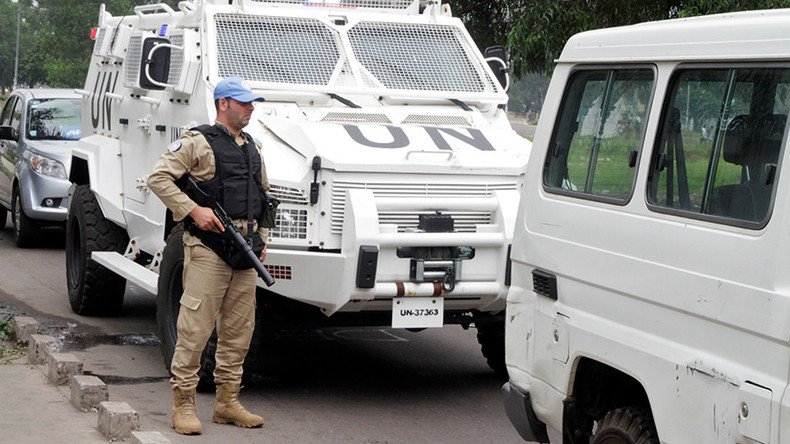
If Washington and Kiev are reluctant to engage in comprehensive talks on the Russian proposal to deploy UN peacekeepers to the war-torn Donbass region in eastern Ukraine, Moscow “would not force them,” Sergey Lavrov said.
“We have made the proposal and provided reasoning for it in all ways possible, including through Russian President Vladimir Putin. We have not received any concrete written proposals regarding our initiative from anyone. If they do not want to discuss it, what would we do? We would not force them, would we?” Russian Foreign Minister Sergey Lavrov told NTV on Sunday.
The statement came in response to a reporter’s question on how Russia should react to US and Ukrainian leaders refusing to support Russia’s idea of sending a UN mission to Donbass.
In early September, Russian President Vladimir Putin called for a UN peacekeeping mission to be sent to the war-torn eastern regions of Ukraine. The mission would be deployed to the line of demarcation to protect the OSCE [Organization for Security and Cooperation in Europe] mission, which monitors the shaky ceasefire between the government forces and independence-seeking rebels.
Moscow’s initiative was welcomed by German Foreign Minister Sigmar Gabriel, who urged all parties involved to “openly discuss with the Russian Federation the conditions of a UN mission” instead of dismissing it.
German Chancellor Angela Merkel said the mandate should be expanded to allow the peacekeepers to accompany OSCE observers on monitoring missions away from the demarcation line. Moscow said it would consider the idea.
Meanwhile, Kiev is against the “Russian scenario,” according to Ukrainian leader Petro Poroshenko, as he wants to deploy UN peacekeepers to the whole Donbass region to not “allow Russian troops and weapons to penetrate to the occupied territory.” Russia has repeatedly denied such accusations, saying it only delivers humanitarian aid to the region, where people are facing an economic blockade from their own government.
The international discussions within the framework of the UN Security Council reached a stalemate. The US and Ukrainian delegations refused to discuss the draft resolution, as Kiev is working on a counter-proposal, Russia’s permanent envoy to the UN, Vassily Nebenzia, said earlier this week.
“We proposed to work on the wording of the document, but Ukraine’s and the United States’ delegations said that they were not ready to work on it after the initial discussion. They will have substantial remarks on it, or maybe the Ukrainians will have a counter project on the issue of deploying the peacekeeping mission to Donbass,” Nebenzia told TASS on September 18.
Poroshenko claimed that US President Donald Trump fully supports Ukraine’s proposal to deploy UN peacekeepers to the entire Donbass region. While Trump did not personally comment on the peacekeeping mission to Donbass following his meeting with Poroshenko earlier this week, a US State Department spokesperson had previously voiced the idea of a “broader mandate.”
“We believe the possibility of a UN peacekeeping force for eastern Ukraine is certainly an idea that is worth exploring,” Heather Nauert said on September 13. “Any such force should have a broad mandate for peace and security throughout the occupied territory of Ukraine up to and including the border with Russia in order to avoid deepening or institutionalizing the divisions inside Ukraine.”
The idea of providing the peacekeeping mission to control the Ukraine-Russia border, however, was dismissed by Moscow as contradicting the Minsk agreements on the ceasefire in the eastern regions of the country.
READ MORE: US wants ‘broad mandate’ for UN peacekeeping mission in Ukraine
“The Russian proposal in its essence stipulates that this UN mission would be able to ensure the security of the OSCE mission personnel in the areas where this OSCE personnel are performing their function. They mainly perform their functions at the demarcation line,” Kremlin spokesman Dmitry Peskov said on Friday.
“The deployment of any missions at the border, as strictly stipulated by the Minsk Agreements, would contradict the Minsk Agreements. What is essential is that in any case, any aspects of any mission’s work are of course subject to approval by the sides in the conflict, namely Kiev and the unrecognized republics of Donbass.”
